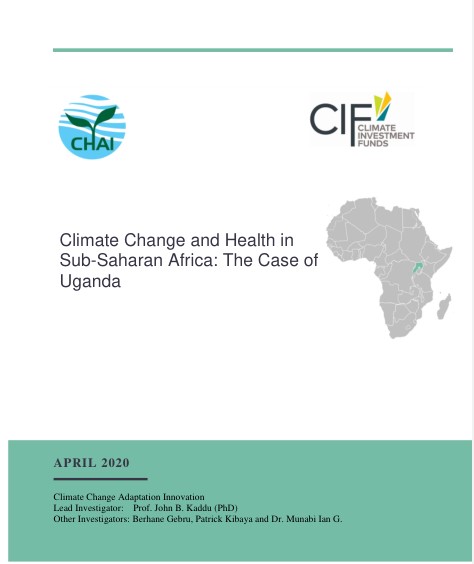Climate change is a global threat to stability. With its impacts in the form of extreme weather events and
rising water body levels, climate change exposes present and future generations to lifelong health and
livelihood harm, particularly in regions with low adaptive capacity, such as Africa. In Uganda, a country
with huge dependence on natural resources, the increased frequency and intensity of severe weather,
such as flooding and drought, causes tormenting risks, as the occurrences of water-borne and vector-
borne diseases and malnutrition-related illnesses are aggravated.
To enhance the ability of the national health systems to prepare for and cope with rising needs for treating
climate-sensitive diseases, Uganda has put in place a range of measures, including a health sector
development plan that reflects the need for “early warning systems and dissemination of weather
forecasts to help health managers to improve preparedness and response” (GoU, 2015). Despite the
successful introduction of policy measures, to-date, the country has not introduced a system capable of
predicting the anticipated occurrence of climate sensitive diseases based on changes in weather
conditions (such as temperature and rainfall). This would help prepare the health system to respond to
increased occurrences of climate-sensitive diseases. This study addresses this gap by developing a digital
solution that predicts the occurrence of climate-sensitive diseases based on historical and current weather
and health data.
Download Climate Change and Health in Sub-Saharan Africa: The Case of Uganda

